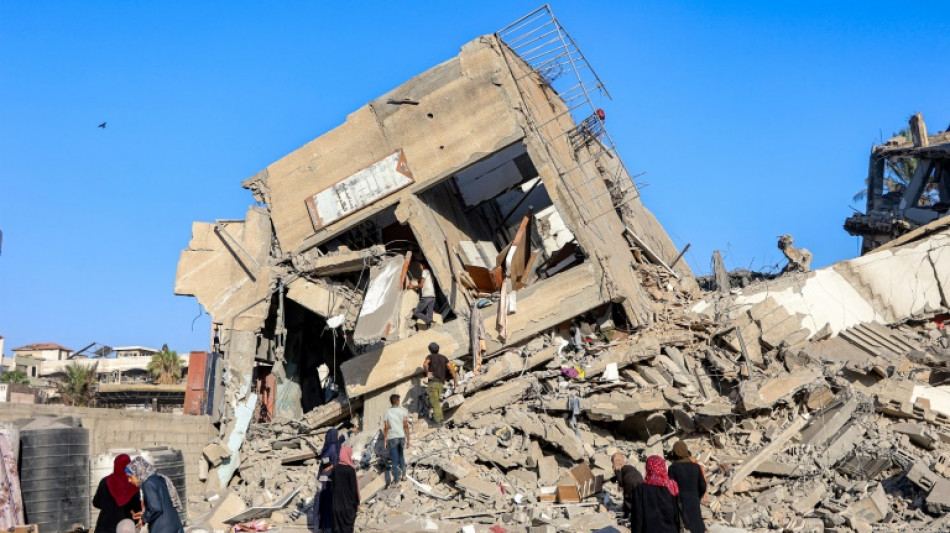A constant stream of Palestinians fled in tractors, carts and overloaded vans down a coastal road in the central Gaza Strip, the latest mass displacement as Israel intensified its assault on the territory's main city.
Those escaping the offensive on Gaza City left behind them a scene of utter devastation, where smoke from the aftermath of Israeli strikes wafted behind buildings that had already been reduced to rubble.
The United Nations estimates that nearly a million people live in Gaza City and its surroundings -- the Palestinian territory's largest urban centre which the Israeli military is gearing up to seize.
The army on Tuesday told all residents to leave immediately and head southwards, saying it would act with "great force" in the city.
"We were forcibly displaced to the southern Gaza Strip under intensified shelling," said Saeb al-Mobayed, who was fleeing Gaza City along the coastal road.
"Many buildings have been destroyed," he told AFP. "Mosques near areas sheltering displaced people were also targeted, forcing us to leave."
Israel has come under mounting international pressure to end its offensive in Gaza, where the vast majority of the population has been displaced at least once in nearly two years of war.
Some of those forced into their latest move travelled on trucks and tractor-pulled trailers piled high with people and household furniture, while others had little choice but to push heavy carts by hand.
Ahmed Shamlakh, who had also been displaced from Gaza City, pleaded for an end to the war and for crossings into the Palestinian territory to be opened.
"Allow life to return to normal as it was before -- it's enough," he said.
The Israeli military is telling Palestinians to head to a "humanitarian zone" in the southern coastal area of Al-Mawasi, where it says aid, medical care and humanitarian infrastructure will be provided.
Israel first declared the area a safe zone early in the war, but has carried out repeated strikes on it since then, saying it is targeting Hamas.
Gazans have said the journey south is prohibitively expensive and that there is no more space to pitch tents in the designated zones.
The spokesman for Gaza's civil defence agency, Mahmud Bassal, told AFP on Tuesday that even in central and southern areas of the territory: "there are no basic necessities for life -- no shelter, no space for tents, no food, and no drinking water."
Media restrictions in Gaza and difficulties in accessing many areas mean AFP is unable to independently verify the details provided by the civil defence agency or the Israeli military.
- 'Killings everywhere' -
In Gaza City on Tuesday, Israeli army leaflets rained down on Palestinians ordering them to evacuate.
"I ask Israel: where are we supposed to go?" said 36-year-old Khaled Khuwaiter, who had already fled from Gaza City's Zeitun neighbourhood.
"People who fled from Gaza City to the Al-Mawasi area... found no place to stay -- no tents, no water, no food," he added.
"Bombing and killings are everywhere. We have only God, because the world watches our slaughter and does nothing."
Mirvat Abu Muammar, 30, said she had already fled once with her husband and three children and that they now had no basic supplies.
"Evacuation is humiliating," she said.
"We will wait and see. For two years, we have not known a moment of peace or sleep -- only killing, destruction, and despair."
Hamas's October 7, 2023 attack on Israel that sparked the war resulted in the deaths of 1,219 people, mostly civilians, according to an AFP tally based on Israeli figures.
Israel's retaliatory offensive has killed at least 64,522 Palestinians, most of them civilians, according to figures from the health ministry in Hamas-run Gaza that the United Nations considers reliable.
H.Goossens--LCdB
